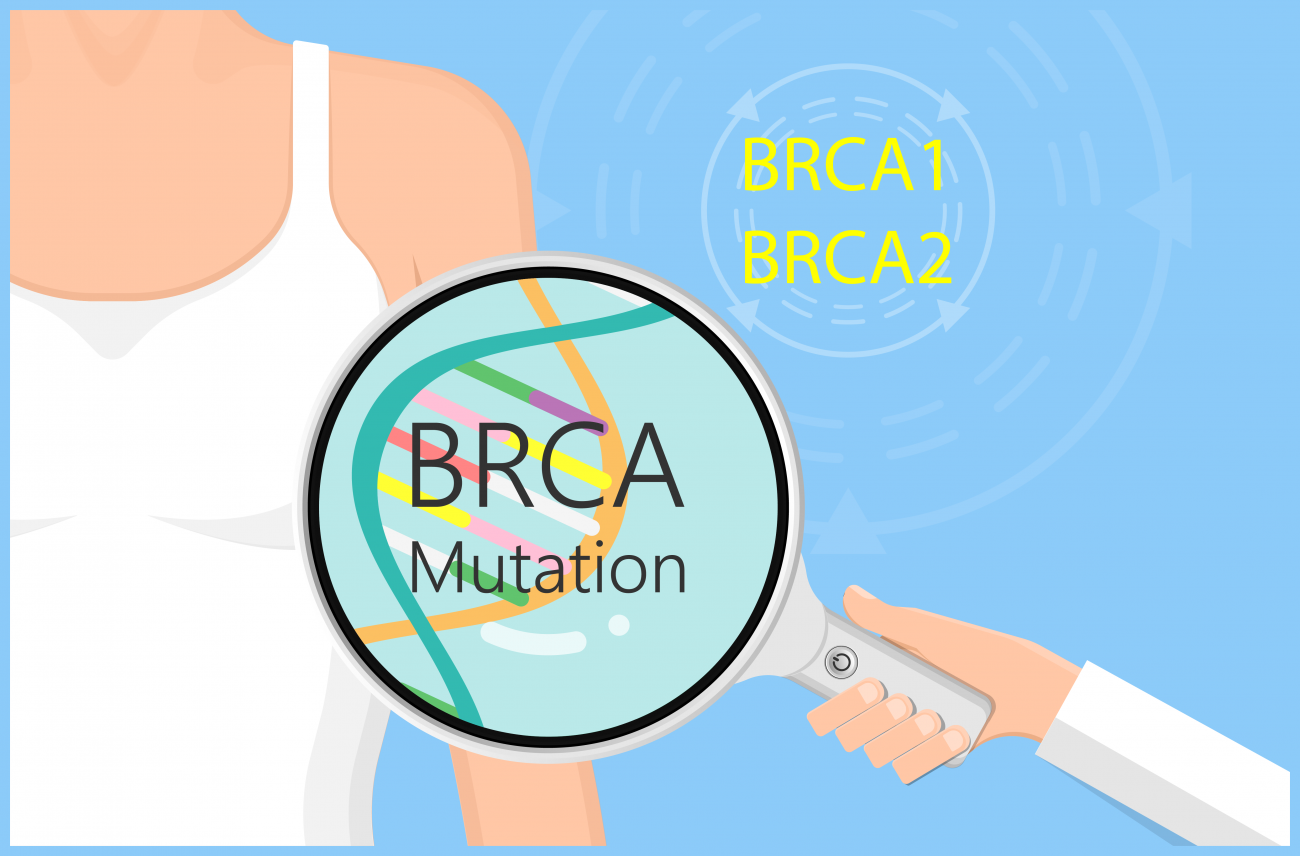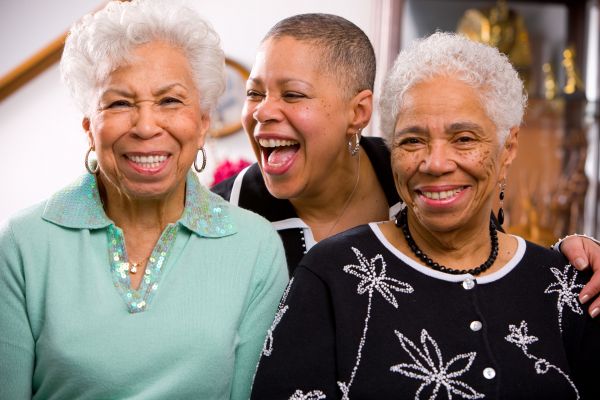How these genes affect your risk for developing breast cancer and other cancer types
The breast cancer susceptibility genes known as BRCA1 and BRCA2 are specific genes found in human DNA. Everyone — men and women — inherit BRCA (an abbreviation for breast cancer, often pronounced bracka) genes from their parents. BRCA1 and BRCA2 are tumor suppressor genes, which, when they function normally, keep tumors from forming.
Some people, however, have an altered or mutated copy of the gene. Certain mutations are associated with an increased risk for several cancer types, including breast, ovarian, prostate, pancreatic, melanoma and, in some families, colorectal. The increased cancer risk is seen most notably in breast and ovarian cancers. In the general population, however, BRCA mutations are relatively rare.
“In most cases, BRCA gene mutations are inherited, or passed down from one or more generations in a family, which is why we often see a pattern of certain cancers in families,” explains Katherine Clayback, MS, CGC, Genetic Counselor with Roswell Park’s Clinical Genetics Service. “But, even if one family member has a genetic mutation linked to the BRCA gene, it does not mean that all family members will have it.”
How Do BRCA Mutations Cause Cancer?
Genes are the body’s sets of genetic instructions. Mutations within BRCA genes cause them to not work as well as they should. “When BRCA genes are mutated or altered, cells are unable to repair themselves, causing an increased risk to develop specific types of cancer,” says Clayback.
Mutations in the two kinds of BRCA genes will affect patients’ risk differently.
BRCA1 mutations are associated with an increased risk for:
- Breast cancer, including an aggressive form called Triple Negative Breast Cancer
- Ovarian cancer
- Pancreatic cancer
- Prostate cancer
BRCA2 mutations are associated with an increased risk for:
- Breast cancer
- Ovarian cancer
- Melanoma
- Pancreatic cancer
- Prostate cancer
How Do I Know if I Have a BRCA Mutation?
“The only way to know for sure is to have genetic testing done,” says Clayback. “At Roswell Park, we routinely recommend genetic counseling and testing for people already diagnosed with certain types of cancer, including metastatic breast cancer, metastatic prostate cancer, ovarian cancer and pancreatic cancer, regardless of family history.” Roswell Park recommends genetic counseling and testing for individuals diagnosed with one of these cancers at a young age or if there are other family members diagnosed with these types of cancers.
For the general public, Roswell Park recommends genetic counseling and testing if any of the following factors apply:
- Family history of breast, ovarian or prostate in multiple relatives on the same side of the family, or any family member with pancreatic cancer
- A personal or family history of breast cancer diagnosed at a young age (before age 45 or premenopausal)
- A family member diagnosed with cancer in both breasts, with one breast cancer diagnosed under age 50
- Ashkenazi Jewish (Eastern European) heritage and a family history of one of these cancers
- A male relative diagnosed with breast cancer
- A known genetic mutation in your family
“Testing has several purposes,” Clayback explains. “For a person with cancer, the results can help doctors determine the best options for treating the cancer. For a person with a BRCA mutation, the testing may guide them in terms of preventive steps to consider related to a future risk for cancer, such as surgery, additional screening and family planning. Genetic testing also offers valuable health information that can be shared with other family members, to increase their awareness of possible cancer risk.”
Genetic Screening at Roswell Park
If you believe you are at high risk for a BRCA or other gene mutation, contact 1-800-ROSWELL. You will be directed to Roswell Park’s genetic counseling and testing or appropriate services for screening, surveillance and other options.
Learn MoreIf I Have a BRCA Gene Mutation, Will I Get Cancer?
“A BRCA mutation increases the risk of getting certain types of cancers,” Clayback says. “However, not all people with BRCA mutations will get cancer.”
“For example, approximately 12% of women in the general population will develop breast cancer at sometime in their lives. But, for women with a BRCA1 or BRCA2 mutation, the risk of developing breast cancer increases to as much as 72%. Likewise, about 1 to 2% of women in the general population will develop ovarian cancer sometime during their lives, but up to 44% of women who inherit a harmful BRCA1 mutation and about 17% of women who inherit a harmful BRCA2 mutation will develop ovarian cancer by the age of 80.”
Which Gene Mutation is Worse, BRCA1 or BRCA2?
By age 70, women BRCA1 carriers have a slightly higher risk of developing breast cancer than BRCA2 carriers. Also, BRCA1 mutations are more often linked to triple negative breast cancer, which is more aggressive and harder to treat than other types of breast cancer. On the other hand, males with the BRCA1 gene mutation have a 1% lifetime risk of developing male breast cancer, while those that have BRCA2 gene mutation have a 6% risk of developing male breast cancer.
BRCA carriers who get ovarian cancer appear to have better survival than non-carriers in the first five years after diagnosis. “This may be because BRCA related ovarian cancers often respond better to chemotherapy than non-BRCA ovarian cancers,” Clayback says.



